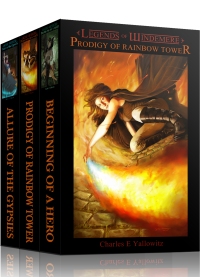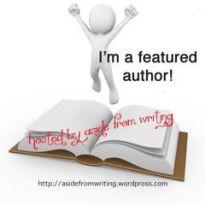
Dr. Evil
I was going to do a big post about this topic, but I realized that this could be one that differs from person to person. So, it’s best for me to start with myself and then open up the floor. To opinions and not letting people fall into a vat of acid that also has robotic piranhas.
You see, it’s really hard to write a villain if you’re going for one who should be hated. I think it’s gotten more difficult over the years because people are more into sympathetic villains. We want to know why they do what they do and can reach the point where we kind of feel for them in a way. You get a group of the fandom that roots for the bad guys too. That seems to be the easiest thing these days because you pull back on how evil they are and give room for forgiveness. Once you cross that line, you can’t have them be sympathetic at all . . . Unless it’s Anakin Skywalker killing a bunch of children, which doesn’t seem to have reduced Darth Vader’s popularity at all.
Now, this topic isn’t about that, but I bring it up for a good reason. Every time I make a post about villains, people comment primarily with those that they feel sorry for or have some sympathetic side. It’s never a true villain that people bring up now even if the topic leans more towards that side of the coin. Why is that? Is it because people don’t want to think about the truly monstrous characters? I think it’s that way for some because there’s no connection there. That’s because they do the horrible things that we would never dream of doing. People who do tend to be the types that other humans would really want to avoid. In fact, we tend to call such people ‘monsters’ when they give in to that darkness and are caught. The villains of our world rarely have the sympathetic side that those in fiction have.
I’ve wondered for a while if there’s a way to go too far with the evil. Every time I try to talk about the subject, I run into that ‘beloved baddie’ issue. So, I never get very far. That might be because everyone has a different limit as to what they will accept from a character before they turn away. The gradients are small, but they’re definitely at a point where you get debates over if a character is redeemable or not. For myself, rape is a big ‘you are dead to me’ thing with villains while another person might put the line at ‘shoplifting’. Seriously, I talked with a person years ago who had this pet peeve about shoplifting in fiction. On the other side of me, I know people who will still root for the rapist villain because they’re ‘cool’ or ‘entertainingly evil’. So, there are those with incredibly high tolerances for evil acts in fiction to the point where they won’t turn on a horrific monster. That isn’t to say they would do it themselves, but they enjoy seeing the darkest depths of depravity.
Now for the questions:
- What is your evil limit?
- Does a story lose you if the villain goes too evil?
- Have you found that the lines of what is too much have changed as you get older?





1. This is hard to quantify, because, as you mentioned, people have such differing views on what they consider evil. Think of some views you have heard from vegans, pro-choice, PETA, etc. I am working on a book where a person has murdered many, many people. He is someone people would hate. However, I have to understand where he is coming from, otherwise, he’s just one dimensional. He doesn’t see himself as evil though everyone else does. (And there is no light at the end of the tunnel for him.)
2. I can’t help thinking of Silence of the Lambs here. I thought the film was extremely well done though it involved a really twisted villain (Buffalo Bill). By contrast Hannibal Lecter was much more sympathetic. But I confess that I don’t read a ton of really dark stories, because I like to sleep at night and don’t want to dwell on some things. This is not to say that an author shouldn’t write those characters. As I mentioned, Silence of the Lambs was great.
3. When I was a teen and a younger adult, I read more darker books for pleasure. So, maybe? This excludes books I have to edit, however. You don’t get much choice there.
LikeLike
1. I was asking more on a personal level than in general. Still, you’re right. Everyone is different. Makes writing villains tough.
2. Would you say your limit depends on how monstrous the villain is in terms of personality?
LikeLike
1. I’m too squeamish to write an Anton Chigurh -type of villain. So Javier Bardem probably won’t be lobbying to play any character I write. But there is a need for those who can go there with a villain.
2. Personality, yes.
LikeLike
I think I’ve expanded the type of villains I can write since I was a teenager. Figure that the stakes have to grow and I become better at handling a higher level of evil.
LikeLike
As to your antagonist, I think that when people do something cruel or even slightly against-the-rules, they absolutely do know they are doing wrong. Part of the evil is that they take the step even knowing it is wrong. For someone to be a multiple murderer and not see their own evil would be very unrealistic to me, as a reader.
LikeLike
My evil limit is when it comes to kids or pets. Lay off.
A story does not lose me with too much evil. I do walk away when it gets to be evil for evil’s sake. There has to be a reason for evil behavior.
My lines for evil have not changed. I remember when I was much younger I still couldn’t stand pets and kids being mistreated. I couldn’t stand David Copperfield’s mistreatment for example.
LikeLike
Kids and pets seem to be a big one. I’m a bastard though because I see everything as a possible villain target. It’s always unreal when there’s carnage going on, but a kid and a pet are unscathed.
LikeLiked by 1 person
Yeah I get that too. I was writing a scene about a helter skelter type thing and they killed the family pet too. I hated that and scrapped the wold thing.
LikeLike
This is hard for me to qualify. I agree with kids or pets, but wrote child victims in The Playground. I didn’t get into dismemberment or anything, it was more like mental grooming for an evil purpose that my heroine had to disrupt. Years ago, audiences understood who the bad guy was, and didn’t need anything else. Today, they want at least a minimal motivation as to why they are doing something.
LikeLike
Going into details with killing kids and pets is definitely a line. I think you can get away with offscreen and vague at times. Good point in people wanting motivation these days. No evil for evils sake.
LikeLiked by 1 person
I also killed a kid in Serang. Guess I have an evil streak.
LikeLike
The torch and pitchfork mob will be there soon.
LikeLiked by 1 person
No doubt.
LikeLike
If you want the angry mob led by Gwen Stefani then we’ll see what we can do.
LikeLiked by 1 person
No Trumpers. Those guys are serious.
LikeLike
Okay. Though, you might get a bunch of people dressed as bananas.
LikeLiked by 1 person
At least I’ll go out with a smile.
LikeLike
I have a weird way of approaching villains in my writing. I always try to look at what motivates them to be evil. Usually, at least in their devious minds, there is something that justifies their behavior. I like to think that if my books were written from their point of view, as a protagonist, it’s feasible that they could be the hero. I don’t believe in evil villains that are devious must for the sake of being evil.
LikeLike
I think that’s the current way to do villains. They’re the heroes in their own minds. Older villains seem to simply be evil and darkly ambitious, especially in fantasy. I’m actually torn in villains who are evil for evils sake too. I’ve met some people who are mean and cruel because they enjoy it. They find the pain of others funny. So, I do think you can have a villain like that. I’ve got some ideas on why we have trouble with them. Mostly, our own empathy turns us off to true evil and makes us think it’s impossible in a human form. We can get a fear that even we’re capable of it.
LikeLiked by 1 person
That’s a great perspective. Even those who take joy in the pain of others, however, might have some root cause if you dig enough. Imagine, if you will, a world leader that spews divisiveness at every turn and never takes any blame. If you look at that leader’s upbringing and family role models, you just might find that they don’t have any other frame of reference. Not citing anyone in particular, but you get the idea 🙂
LikeLike
True, but that still makes them evil and selfish for the sake of it. Does that earn them sympathy? The strange thing I’ve noticed in this topic is how different our beliefs in good and evil are. Both in reality and fiction. We can believe it a person who is pure good without question, but the idea that somebody is pure evil without a reason is outlandish. This is why I think a dark villain who simply enjoys pain and doesn’t need a humanizing backstory is possible. Why shouldn’t it be if a pure of heart can exist with no real explanation?
LikeLiked by 1 person
I definitely see your point. Great discussion.
LikeLiked by 1 person
For a long time, heroes and villains were explicitly black-and-white, and as Craig says no more was needed. Starting about the ’60s, people wanted more complex narratives. Maybe because of the Viet Nam War?
For me, I do want to know why my villains are doing whatever it is, but I know on some level the “motivation” is them making excuses to themselves. And I don’t buy their sad, sad stories.
LikeLike
It could have been the social shift around the war. Maybe the change in civil law too since more groups were getting basic rights.
LikeLiked by 1 person